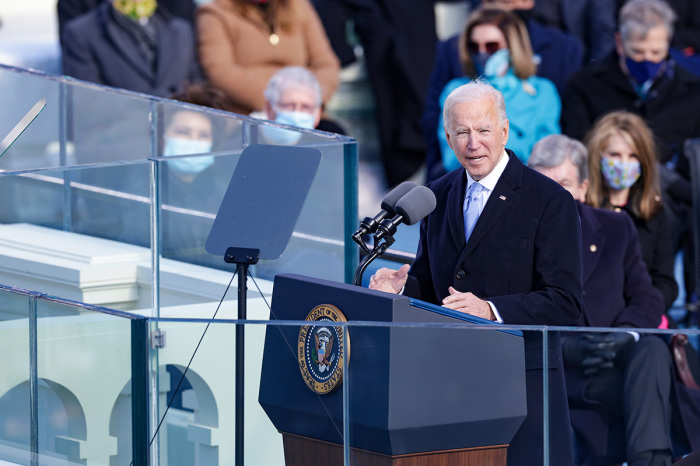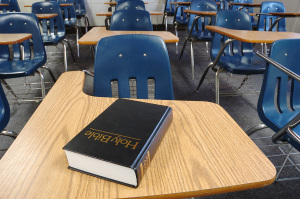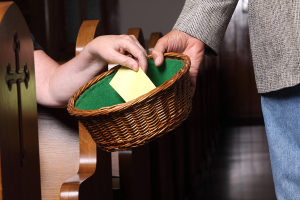Most black evangelicals say 'people like them' will gain influence under Biden, poll finds

A new report from Pew Research Center suggests that even though evangelicals as a whole think they will have less influence in the Biden administration, a majority of black evangelicals predict that they will gain influence as a result of the change of power in Washington.
The study, based on the responses of adults from several religious denominations in the United States, was conducted between Jan. 8 and Jan. 12 as part of Pew’s American Trends Panel, which is based on a sample of 5,360 respondents with an error margin of 1.9 percentage points.
Respondents were asked if they thought “people like them” will gain or lose influence in Washington during the Biden administration, which had yet to take office when the survey was administered.
A majority of nearly all groups surveyed predicted that “people like them” would lose influence in the Biden administration, which commenced when President Joe Biden took office on Jan. 20.
Overall, 24% of respondents predicted that their religious demographics would gain influence in the Biden administration. Meanwhile, 36% predicted that their religious group would lose influence in the new administration and 39% said that people like themselves would “not be affected.”
Black Protestants and black evangelicals were the only two religious groups where most adherents surveyed predicted that they would gain influence in the Biden administration.
Among both groups, 55% said that they expected “people like them” to gain influence with Biden taking office, while 39% anticipated that their influence in Washington would not be affected by the change in administrations.
Just 4% of black Protestants thought they would lose influence, while 5% of black evangelicals said the same.
By comparison, only 9% of white evangelicals predicted that they would see their influence in Washington increase in the Biden administration, while 63% anticipated seeing their influence wane.
About 26% of white evangelicals predicted that their influence in Washington would not be affected by a new president taking office.
The divergent responses from black and white evangelicals regarding their influence in the new presidency reflect the groups’ dramatically different preferences in the 2020 presidential election.
Dr. Barbara Williams-Skinner, the co-convener of the National African-American Clergy Network, explained during a recent conversation on the religious divide in the U.S. that white evangelical Christians and black Protestant Christians are “two of the most religiously active groups.” But she stressed that they are “totally opposite in their politics and their core beliefs, almost as though they’re serving a different God.”
According to CNN exit polling, 76% of white evangelicals voted for President Donald Trump, the Republican candidate, in the 2020 presidential election. Meanwhile, 87% of black voters supported Biden.
A plurality of white mainline Protestants surveyed by Pew (47%) agreed with their evangelical counterparts that they would lose influence in the Biden administration. Only 14% thought they would gain influence, while 38% did not anticipate a change in the influence they would have in Washington.
Among Catholics, 25% said that they expect to gain influence in Washington with Biden in the White House, while 34% told Pew that they thought they would lose influence.
About 41% of Catholics foresaw no change in influence.
Biden, himself a practicing Catholic, has faced criticism from church leaders over his support for abortion rights, which contradicts church teaching.
About 46% of white Catholics predicted that “people like them” would have less influence during a Biden administration, while just 14% thought they would have more influence.
Hispanic Catholics were more optimistic about their influence during a Biden administration, with 38% predicting they would have more influence in Washington and 16% expecting a declining influence. In both cases, the remainder of Catholics did not predict an impact one way or the other.
Those unaffiliated with any particular religion were split on whether they would gain or lose influence in the Biden administration. Twenty-six percent predicted that they would gain influence in Washington, while 27% thought they would lose influence. A plurality of religiously unaffiliated respondents (47%) did not think their influence in Washington would change with the new administration.
While 7% of Republicans and independents who lean Republican thought they would gain influence under Biden, nearly two-thirds (66%) said they would lose influence.
At the same time, 40% of Democrats and independents who lean Democratic expect to gain political influence in the new administration compared to 10% who thought they would lose influence.
Half of Americans expect that evangelical Christians will lose influence in the Biden administration, with white evangelicals themselves the most pessimistic about their influence in the new administration.
Just 5% of white evangelicals predicted an increased influence in Washington compared to 72% who expected a decreased influence, and 20% said their influence would not be affected.
Black Protestants were split about their views of evangelical Christians’ influence on the new administration, with 27% predicting that evangelical Christians will have more influence with Biden at the White House.
Majorities of white Catholics (50%), whites (59%), Protestants (56%), white mainline Protestants (61%), men (57%) and Republicans (65%) believe that evangelical Christians will have a smaller influence in Washington under President Biden.
Pluralities of women (44%), unaffiliated voters (47%) and women (44%) said the same. Meanwhile, a plurality of Catholics (44%), Democrats (47%) and blacks (48%) think that evangelical Christians’ influence in Washington will not be affected by a new president. A majority of Hispanics (51%) agreed.




























